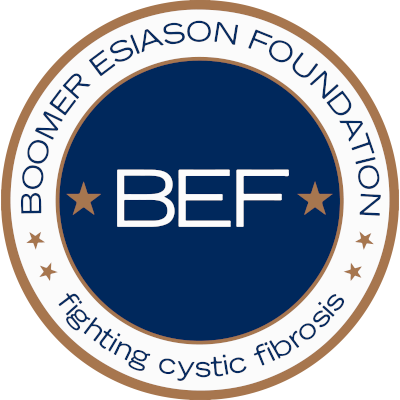Researchers at The Research Institute at Nationwide Children’s Hospital in Ohio are finding ways to boost immunity in cystic fibrosis patients. Colleagues in principal investigator Dr. Benjamin Kopp’s laboratory published a study in PLoS One that details the use of interferon gamma (IFN-γ) to stimulate autophagy in macrophages to clear Burkholderia cenocepacia infections. “[B. cenocepacia] can avoid the host immune response, and that’s where something like IFN-γ might work better than traditional antibiotics,” said Dr. Kopp in a news release.
B. cenocepacia is a bacteria found in the earth that is usually nonthreatening. In 2-5% of cystic fibrosis patients, the bacteria colonizes the thick, sticky mucus in their airways and can spread into the bloodstream to cause sometimes-fatal widespread inflammation. Normally, macrophages, the immune system’s first defense against pathogens, are able to clear infections. In the case of B. cenocepacia, the bacteria actually replicates inside macrophages. Adding to the problem is that “B. cenocepacia is multi-drug resistant, so usually when patients are ill, they are on a cocktail of antibiotics,” said Dr. Kopp. Antibiotics are not enough to fight the infection, and the infection deems patients unsuitable for lung transplants.
Dr. Kopp’s team turned to the cytokine IFN-γ, which can be produced by neutrophils studied previously in unrelated work from UT Southwestern Medical Center as well as other cells, as a means of stimulating autophagy in infected macrophages. Autophagy is defective in cells from cystic fibrosis patients, and the team obtained macrophages from the blood of cystic fibrosis and non-cystic fibrosis patients. After infecting the cells with B. cenocepacia, the team noticed intrinsic IFN-γ production decreased in cystic fibrosis macrophages. To rescue the deficiency, the team treated cells with synthetic IFN-γ, and markers of autophagy increased with a concurrent decrease in infection.
“The goal of the study was to show if you could stimulate autophagy, you could help clear pathogens better. These findings clearly suggest that is indeed the case,” said Dr. Kopp. But the work does not stop here. This study is only one of a series from Dr. Kopp’s laboratory that is looking a autophagy mediation, as it is becoming more prominent in cystic fibrosis and compromised immune system research. “As we’re learning more about CF, we’re finding more and more issues with the immune system and not just the typical clearance of mucus,” said Dr. Kopp. “Now we’re discovering that there is this initial response, of which autophagy is a part, in which the immune system is not clearing the bacteria and there are some continued deficits in that in CF patients.”
IFN-γ has been extensively implicated in multiple sclerosis treatment, so it would be relatively easy to attempt clinical trials using IFN-γ in cystic fibrosis patients. If more treatments come from Dr. Kopp’s work, the cystic fibrosis community will be greatly benefited, as most available drugs are not fully effective and are accompanied by adverse effects to the point that physicians are unwilling to prescribe them.
